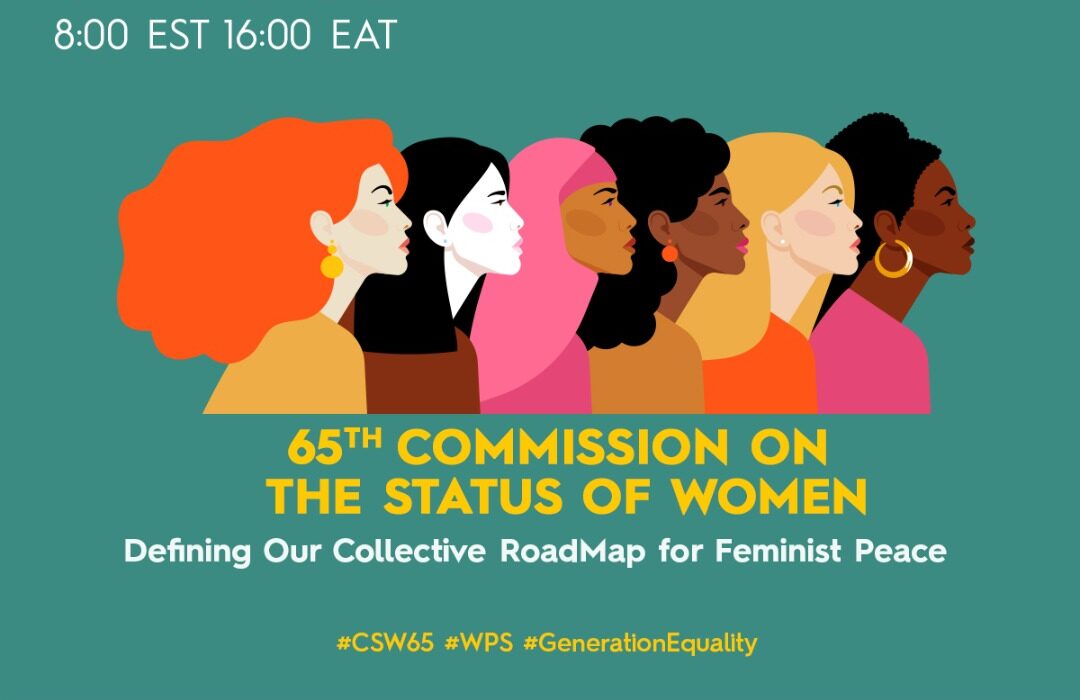The Peace Centre convened a parallel event at the Virtual 65th Commission on the Status of Women on Monday, 15th March at 3:00 pm EAT. This year, the aim was to hear and reflect on the perspectives of diverse women peace builders including young women, displaced women, women with disabilities, women in rural areas, women peace builders in the local/sub-national governments, religious institutions, the private sector, technology and academia. In an enlightening conversation with diverse women peace builders, we defined the concrete actions necessary for us to see the transformative change associated with our vision of feminist peace over the next 25 years.
At the parallel event we focused on the actions necessary for transformative change in the next 25 years, and as a Catalytic Member of the Generation Equality Women, Peace and Security and Humanitarian Action Compact, we discussed this in the context of a two hour moderated conversation in plenary with speakers making brief
submissions. The discussions included the role of academia in feminist peace building and creating the next
generation of transformational leaders which was led by Dr Angelina Mattijo Bazugbo, from the National Transformational Leadership Institute, University of Juba, South Sudan.
It also included conversation on the game changers necessary for real progress towards feminist peace from
the perspective of young women, refugee women and girls who were represented by, Eunice Pikiyiko, Crown the Woman South Sudan and Elizabeth from Nyumanzi Refugee Settlement respectively. Women peace mediators views were also shared by Aimee Imani Matabaro, Initiative de Lutte contre la Vulnerabilite et de promotion de la Personne humaine (ILVP).
The concrete actions necessary for us to see the transformative change associated with our vision of feminist peace over the next 25 years were discussed as;
The need for continued conversation and advocating for Safe spaces/Plat forms and Mechanisms to protect women peace builders from insecurity, threat of intimidation, revenge/retaliation from combatant behaviors in political institutions; and exhaustion as a result of excessive work of lobbying and advocacy. The need to provide resources to women and organizations to be able to translate WPS agenda and other policies into practice, without leaving out men and boys who remain responsible for preserving the gendered norms in the society.
The conversation in Burundi discussed the need to strengthen the potential influence of women, strengthen the women’s movement, work on social norms, practices and legal systems that block women in peace and security processes, and define a new approach that involves influencing key players at several levels. In the Democratic Republic of Congo, it would be better first of all to understand that the various conflicts are due to the natural resources of the country. Women therefore need to be protected especially during the post-conflict period in their direct involvement as actors in all peace processes by granting them substantial means to actualize the solutions to their problems.
The executive director, Helen Kezie closed the conversation by linking to regional and global opportunities for monitoring, accountability and collective action. She asked the participants to think about ways in which we can sustain activism at the individual level and hold state and non-state actors accountable to holding peace. She stressed that we need to mentor young people so that when we leave we have built a critical mass.



